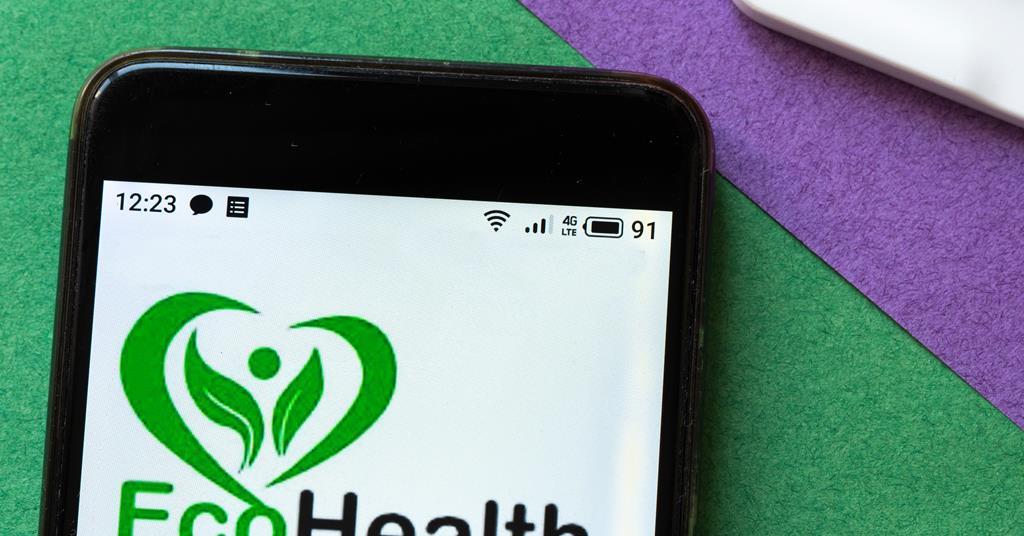World
EcoHealth Alliance fights back against US government funding suspension

The New York-based non-profit EcoHealth Alliance (EHA) is fighting back against the US government’s decision in May to suspend its research funding. Prior to the outbreak of Covid-19, the organisation was using a government grant to fund research at the Wuhan Institute of Virology (WIV) in China, which was ground zero for the controversial theory that a lab leak was responsible for the global pandemic.
The problems for the EHA were sparked by a $3.7 million (£2.9 million) grant it received from the National Institutes of Health (NIH) in 2014 and that was renewed in 2019, on which WIV was a consortium participant. That study examined coronaviruses in bats and their potential to jump to humans and WIV reportedly received more than half a million dollars. Back in 2020, this work became an important issue for President Trump and some Republicans in Congress.
The new suspension of grant funding by the NIH and its parent agency, the Department of Health and Human Services (HHS), which occurred in mid-May, was in response to the EHA’s apparent lack of compliance with the terms and conditions of NIH grant awards.
HHS claims that the EHA’s review of the grant in question was submitted more than two years late and it determined that an experiment by WIV had possibly yielded a greater increase in viral activity than allowed, violating the terms of the grant. HHS says these problems, among others, led the NIH to conclude that the WIV research in question ‘likely violated’ the agency’s biosafety protocols.
President faces debarment
‘EHA did not adequately monitor WIV’s compliance and, therefore, its own compliance, with the terms and conditions of its grant award,’ Henrietta Brisbon, an HHS suspension and debarment official, wrote in a 15 May action memo. ‘Therefore, given the issues regarding the management of EHA’s grant awards and subawards, I have determined that the immediate suspension of EHA is necessary to protect the public interest.’
In her memo, Brisbon indicated that debarment generally doesn’t last for more than three years but is at her discretion.
EcoHealth, which conducts field research and develops tools to predict and prevent pandemics, says it will appeal the suspension. Grants from NIH and other US federal agencies made up almost 85% of EcoHealth’s $16.4 million budget this year. The EHA’s president, British zoologist and ecologist Peter Daszak has also been suspended from receiving NIH grants, and the HHS reportedly commenced formal debarment proceedings against him on 22 May.
Facing political pressure and concerns about continuing collaborative lab research with WIV amid the Covid-19 pandemic, the NIH suddenly terminated that EcoHealth grant in question in May 2020. Shortly afterwards, 77 US science Nobel prize winners sent a letter to heads of the NIH and HHS that expressed serious concerns about the grant’s abrupt termination. The laureates advocated for a ‘thorough’ and public review of the actions that led to the grant’s cancellation.
Around the same time, more than 30 scientific societies also wrote to the NIH director voicing similar concerns.
Lack of adequate monitoring
In early 2023, the HHS Office of Inspector General concluded that the NIH had improperly ended the grant and had not effectively monitored EcoHealth’s compliance with some NIH grant requirements. This is despite identifying potential risks associated with research being performed under three NIH awards between 2014 and 2021, totalling around $8 million.
The NIH reinstated EcoHealth’s cancelled grant in May 2023, but now it is once again suspended, along with the organisation’s other research funding from the NIH and HHS.
Then, in July 2023, HHS banned WIV from receiving US federal funding, after concluding that the NIH-funded study in question on which it was a partner likely violated biosafety protocols.
Now, the EHA says it looks forward to providing formal evidence that proves debarment is not warranted in this case and that Daszak is ready to defend himself. ‘EcoHealth Alliance is currently suspended and we will be filing documents with the HHS suspension and debarment officer to refute all allegations in the HHS suspension letter and to demonstrate, with substantial documentary evidence, that EcoHealth Alliance is currently, and has been for the last 25 years, a good steward of federal funding, conducting extremely productive work for multiple US government agencies, leading to major advances in understanding why diseases emerge and how to prevent them,’ the EHA states.
On 3 June, Anthony Fauci – who directed the NIH’s National Institute of Allergy and Infectious Diseases for almost 40 years, including during the pandemic, and later became President Joe Biden’s chief medical adviser – clarified in testimony before the House Oversight Committee’s select subcommittee on the pandemic that the EcoHealth Alliance grant in question could not possibly have resulted in the creation of the Sar-CoV-2 virus that caused Covid-19.
Under that grant, WIV had a sub-award worth about $120,000 per year to do scientific surveillance on human serology and bat viruses in the environment in China, Fauci stated. ‘Any qualified evolutionary virologist would confirm that the bat viruses that were studied at WIV under the NIH-funded grant were phylogenetically so far removed from Sars-CoV-2 that it would be molecularly impossible for those viruses to be turned into Sars-CoV-2,’ he testified. ‘Any suggestion that the virus studied under the NIH sub-award to WIV resulted in the creation of Sars-CoV-2 is without the slightest bit of evidence or feasibility.’
Fauci added that he was proactive in making sure than any possible ‘laboratory leak’ theory of the virus was actively investigated. ‘We don’t know where the virus started,’ he stated. ‘I have kept an open mind.’










